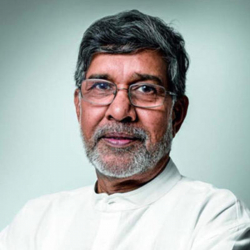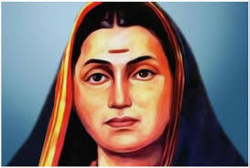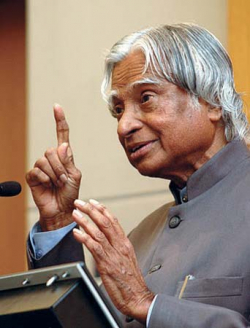Swami Vivekananda
Swami Vivekananda: An Erudite Who Changed The Indian Education
Introduction
Swami Vivekanandaborn Narendranath Dattawas an Indian Hindu monk. He was a chief disciple of the 19th-century Indian mystic RamakrishnaHe was a key figure in the introduction of the Indian philosophies of Vedanta and Yoga to the Western world,and is credited with raising interfaith awareness, bringing Hinduism to the status of a major world religion during the late 19th century. He was a major force in the revival of hinduism in India, and contributed to the concept of Indian Nationalism as a tool to fight against the British Empire in colonial India. Vivekananda founded the Ramakrishna Math and the Ramakrishna Mission. Born into an upper-middle-class family of the Kayastha (scribes) caste in Bengal, he was educated at a Western-style university where he was exposed to Western philosophy, Christianity, and science. Social reform became a prominent element of Vivekananda’s thought, and he joined the BrahmoSamaj (Society of Brahma), dedicated to eliminating child marriage and illiteracy and determined
to spread education among women and the lower castes. He later became the most-notable disciple of Ramakrishna, who demonstrated the essential unity of all religions. Swami Vivekananda's inspiring personality was well known both in India and in America during the last decade of the nineteenth century and the first decade of the twentieth. The unknown monk of India suddenly leapt into fame at the Parliament of Religions held in Chicago in 1893, at which he represented Hinduism. His vast knowledge of Eastern and Western culture as well as his deep spiritual insight, fervid eloquence, brilliant conversation, broad human sympathy, colourful personality, and handsome figure made an irresistible appeal to the many types of Americans who came in contact with him. People who saw or heard Vivekananda even once still cherish his memory after a lapse of more than half a century.
Swami Vivekananda and Education
Swami Vivekananda was not only a social reformer, but also the educator, a great Vedanta’s, patriot prophet of India, who sought to modernise the nation of its social and cultural harmony. His contribution to the awakening of modern India is critique in its kind and quality. If education is viewed as the most powerful instrument of social change, his contribution to educational thought is of paramount importance. According to him education is a continuous process; it should cover all aspects of life - physical, material, intellectual, emotional, moral, and spiritual. He suggested that education should aim at reforming the human mind; it should not be for filling some facts into the brain. It should be the preparation of life. He once said that Education is not the amount of information that is put into your brain and runs riot there, undigested all your life. We must have life-building, man-making, character-making, assimilation of ideas.If education were identical with information, the libraries would be the greatest sages in the world and encyclopaedias the rishis.His attitude towards modernisation is that the masses should be educated before anything else is done. He wanted to remove from India four major evils, via; 1) priest-craft, 2) poverty 3) ignorance 4) tyranny of the wise. He tried to make the people of India understand that political and social strength should have their foundations on cultural strength. He has a true vision of philosophy of education in India in its cultural context.
Man-making Education
According to Swami Vivekananda, it was possible to uplift Indian society from age-old afflictions, responsible for its degenerate conditions, through the process of education alone.
The type of education Swami Vivekananda considered most necessary for Indian society was 'man-making education', which would lead to nation-building. In Swamiji's point of view, this type of education had the capacity for the social regeneration of Indian society because it was supposed to have the potential of purging the human mind of mental decadence, that is, the tendency towards ignorance, laziness and a resigned attitude which accepts anything that is prescribed without personal reflection. The prevailing unscientific attitude had to be replaced by a scientific attitude, whose constituents were objectivity, rationality and a critical temper.
Vivekananda, in his scheme of education, meticulously includes all those studies, which are necessary for the all-around development of the body, mind and soul of the individual. These studies can be brought under the broad heads of physical culture, aesthetics, classics, language, religion, science and technology. According to Swamiji, the culture values of the country should form an integral part of the curriculum of education. The culture of India has its roots in her spiritual values. The time-tested values are to be imbibed in the thoughts and lives of the students through the study of the classics like Ramayana, Mahabharata, Gita, Vedas and Upanishads. This will keep the perennial flow of our spiritual values into the world culture.
Education, according to Swamiji, remains incomplete without the teaching of aesthetics or fine arts. He cites Japan as an example of how the combination of art and utility can make a nation great.
Swamiji reiterates that religion is the innermost core of education. However, by religion, he does not mean any particular kind of it but its essential character, which is the realization of the divinity already in man. He reminds us time and again that religion does not consist in dogmas or creeds or any set of rituals. To be religious for him means leading life in such a way that we manifest our higher nature, truth, goodness and beauty, in our thoughts, words and deeds. All impulses, thoughts and actions which lead one towards this goal are naturally ennobling and harmonizing, and are ethical and moral in the truest sense. It is in this context that Swamiji’s idea of religion, as the basis of education should be understood. We note that in his interpretation, religion and education share the identity of purpose.
Another important aspect of Swamiji’s scheme of education is women’s education. He realizes that it if the women of our country get the right type of education, then they will be able to solve their own problems in their own way. The main objective of his scheme of female education is to make them strong, fear-less, and conscious of their chastity and dignity. He observes that although men and women are equally competent in academic matters, yet women have a special aptitude and competence for studies relating to home and family. Hence he recommends the introduction of subjects like sewing, nursing, domestic science, culinary art, etc which were not part of education at his time.
Conclusion
Swami Vivekananda was actually the greatest synthesizer of ever time. He wanted to remove the evils of the society by giving re-orientation to politics, sociology, economics and education. Swami Vivekananda laid stress on education as a powerful weapon for this change. As an educationalist he believes in absolute values which have to be realized by a good system of education. Education should be the preparation for life. It should develop a feeling of nationalism and international understanding, it should leads to the development of character and make individuals self-dependent. It can be said that Swamiji Vivekananda brings out the inherent value of education through a practical and utilitarian orientation.
He explains how it humanizes and elevates man by bringing out hisspiritual character. Swamiji rightly expresses that education is the training which raises man from the level of a mere creature, shaped by forces outside it, to a self-reliant, dignified person, who is aware of the divinity and perfection that he as a human agent is capable of unfolding. A nation's self-reliance depends upon the degree of self-reliance of its members. Dependence signifies weakness, self-reliance strength. Self-reliance comes through education. Swamiji idea of self-reliance fits perfectly with the ideology of our respected Prime Minister who is trying to promote the idea of #AtmaNirbharBharat.For achieving this perfection Swamiji has given guidelines. He wanted education to be truly Indian and oriented towards full human development.
Thus, the purpose of education as the unfoldment of one's spirituality transcended the parameters of college and university education.









Discussion